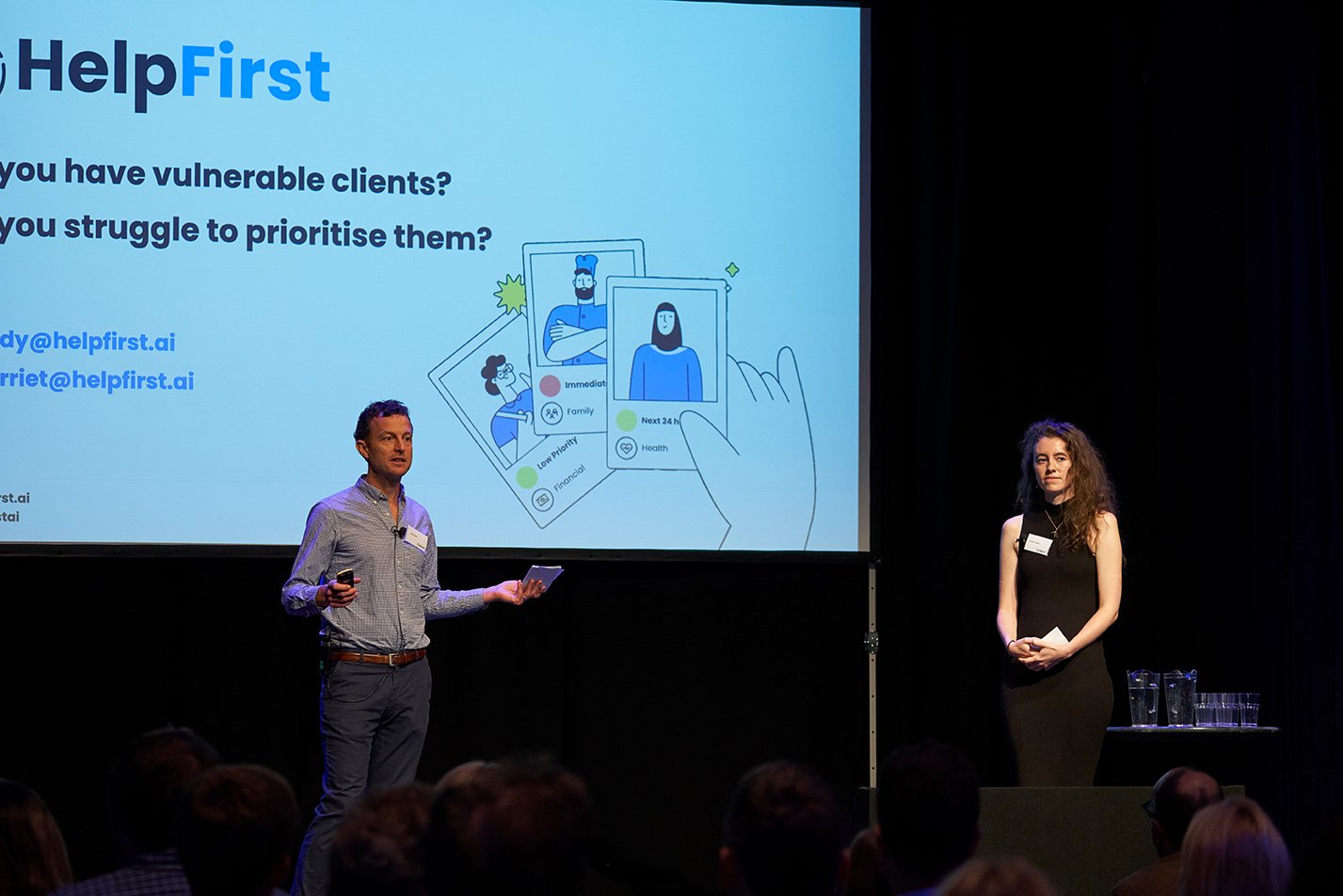How technology is helping to support people in the most vulnerable situations
Citizens Advice Scotland (CAS) are a CivTech 8 Challenge Sponsor. We caught up with George Eckton, Director of Advice Services at CAS, to find out more about the Challenge they sponsored and the technology that is now being developed.
The cost of living crisis means we are seeing rising demand for all services including Citizens Advice Bureau (CAB)and also nationally delivered services such as our Extra Help Unit. While the last year has seen significant progress in our ability to help people in a way that best suits their needs, the further waves of demand mean we need to use technology to help keep up and safeguard users. That’s why we’ve engaged in a number innovation challenges to fuel our digital augmentation strategy and are just entering the pre-commercial stage for another with a new start up HelpFirst.
Helpfirst pitching their solution at CivTech Demo Day 8.
Last year we entered our third consecutive CivTech Challenge process. Citizens Advice Scotland (CAS) run a UK wide vulnerable energy consumer service called the Extra Help Unit (EHU). The EHU delivers a statutory service and supports domestic and micro-business consumers in vulnerable circumstances across Great Britain with their energy and postal complaints. As well as assisting vulnerable individuals and micro-businesses with energy issues, we also work hard to improve standards within the energy industry. We liaise closely with the regulator and other stakeholders to achieve that aim. The EHU’s evidence forms part of Ofgem’s assessment criteria when considering enforcement action against energy suppliers who are not fulfilling their obligations.
2022/23 was the busiest and most challenging year on record since the EHU was established in 2008. Against 2021/22, total cases were up by over 111%, but the most significant change in demand was the need for crisis support which saw self-disconnection cases rise by over 400%.
The EHU team work hard and creatively to respond to unprecedented workloads whilst continuing to deliver a supportive and professional service across a year characterised by the cost of living crisis and spiralling energy prices. Advisers often deal with clients in emotional distress and at crisis point, and have had suicide awareness training to identify callers at risk and are piloting Artificial Intelligence (AI) technology to identify clients who should be made a priority for further crisis support, such as debt advice and food bank referrals.
Having an audience of clients where everyone is vulnerable makes prioritisation more difficult and missing things can have a huge impact for the consumer, cause serious harm or even be life threatening. Consumers who are vulnerable don’t always clearly and succinctly outline their concerns or feelings, which can make detection and identification of priority cases difficult under a load of information, some of it more relevant than others and the sheer volume can hide those in need of greatest help.
We wanted to develop a tool that allows us to quickly and reliably detect those consumers who have the most pressing needs which if undetected could have serious harm for consumer and also the colleague dealing with it. A successful product will help identify the consumer at most risk of harm, allowing targeted support to help those in need.
Group shot of the CivTech 8 cohort at Demo Day.
We look forward to developing that with HelpFirst over the next 18 months and see real potential for other sectors to benefit from this ethical and considered approach to helping those people with the most pressing needs through technology and deliver their duty to consumers of any service.
To learn more about Helpfirst and how they approached the Challenge, you can watch their Demo Day presentation here.


